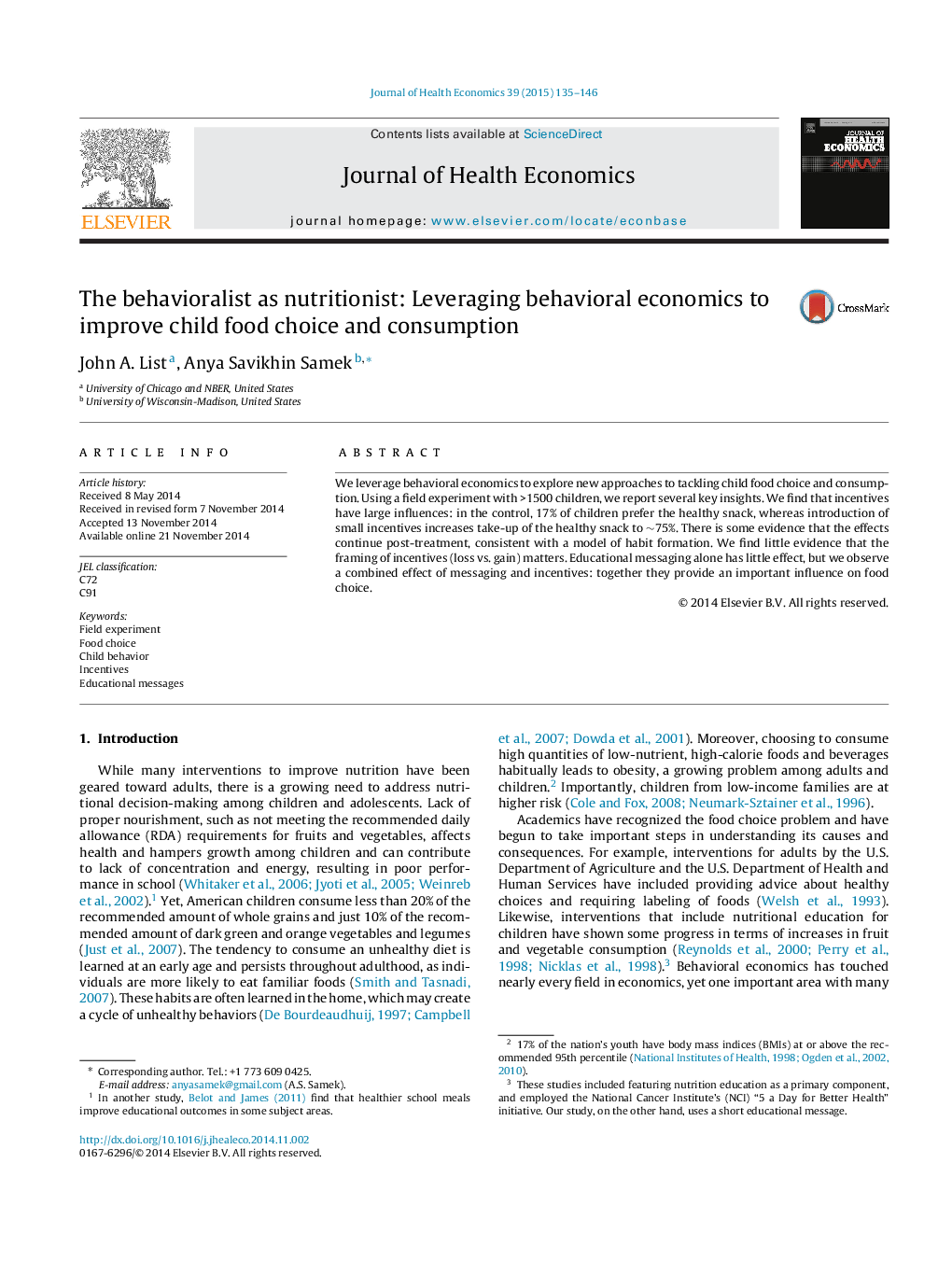| Article ID | Journal | Published Year | Pages | File Type |
|---|---|---|---|---|
| 961838 | Journal of Health Economics | 2015 | 12 Pages |
Abstract
We leverage behavioral economics to explore new approaches to tackling child food choice and consumption. Using a field experiment with >1500 children, we report several key insights. We find that incentives have large influences: in the control, 17% of children prefer the healthy snack, whereas introduction of small incentives increases take-up of the healthy snack to â¼75%. There is some evidence that the effects continue post-treatment, consistent with a model of habit formation. We find little evidence that the framing of incentives (loss vs. gain) matters. Educational messaging alone has little effect, but we observe a combined effect of messaging and incentives: together they provide an important influence on food choice.
Related Topics
Health Sciences
Medicine and Dentistry
Public Health and Health Policy
Authors
John A. List, Anya Savikhin Samek,
